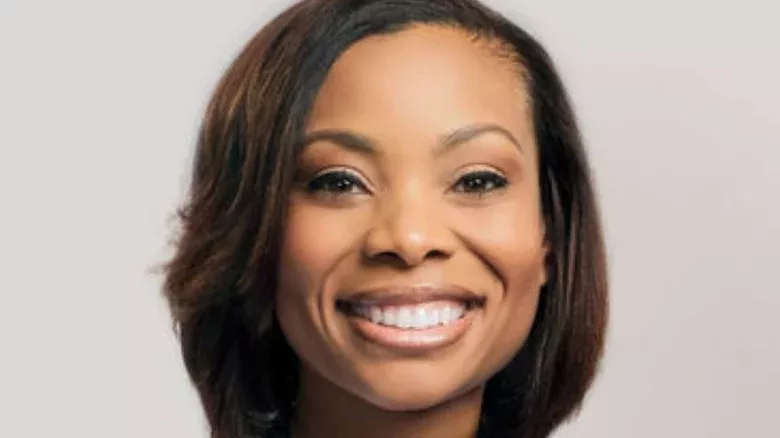This article contains discussion of fertility issues and miscarriage.
Dr. Kenosha Gleaton always knew that she wanted to be a doctor, but she wasn't sure what she wanted to specialize in until she started her rotation in Obstetrics and Gynecology. Before that, she'd thought she wanted to be a pediatrician. But doing her Pediatrics rotation during cold and flu season — when kiddos' runny noses were at their worst — changed her mind. Luckily, she fell in love with her next rotation, OB-GYN. Dr. Gleaton said that she loved building rapport with pregnant people and loved seeing them all the way from conception to birth and beyond.
When she fell in love with her specialty, Dr. Gleaton had no idea that the professional would become so personal. When she and her husband finally started on their own fertility journey, they encountered unexplained infertility. Dr. Gleaton had multiple miscarriages and went through intrauterine insemination before she finally conceived her first child.
Her personal struggles helped her to better understand what her patients dealing with infertility were going through. She became an advocate for those struggling with infertility and dedicated herself to finding solutions. To that end, Dr. Gleaton became a medical advisor for Natalist, a company whose evidence-backed fertility and pregnancy products help people have successful fertility journeys. In an exclusive interview with Health Digest, Dr. Gleaton shared more about her own fertility story, how prospective parents can increase their chances of conceiving, and how people struggling with infertility can take care of their physical and mental health.
Falling in love with OB-GYN
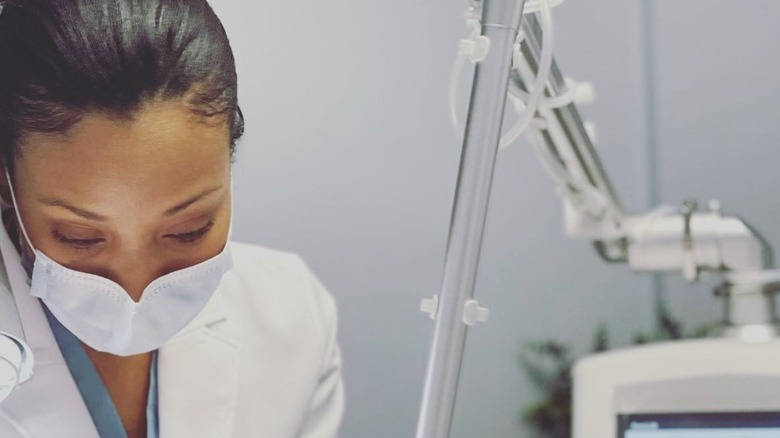
When did you decide that you wanted to be a doctor, and how did you decide on obstetrics and gynecology?
[It was] actually early on. I come from a two-parent household, and both of them completed high school, but neither pursued secondary education. For me, education was always stressed, but I didn't have a lot of role models or examples.
I remember particularly being interested in health in general. As a sixth-grader, my mom signed the consent form that I would not be able to take the health class, because they talked about sex and she didn't want me to start having sex. She said that was not an option. I remember being devastated, like, "Oh my gosh, I want to learn about this. I'm going to be separated from my peers." It was such a big deal for me. Even back then, I reflect on the fact that I was interested back then and didn't know why. That it would propel me into my destiny, learning about puberty ...
I remember being eight years old, and I would read — it's called a home book of remedies or something like that ... It's a book of home remedies where it talks about all these things you could do at home for any type of health ailment. I would read that book for leisure, so from an early age, I knew that I was interested in health.
Since my mom didn't have a lot of resources in terms of affiliates that had gone to medical school or even nurses in our community, because I come from a small town, she would often ... She tried to encourage me, but it would come off in a discouraging way. She'd say, "You got to be the top of your class to be a doctor, and you're not naturally bright and brilliant." I think she believed in my dreams, but she really didn't know how to support them. Anyways, I would say, "Well, I'm going to be a doctor." Eventually, saying it so much made me believe it. Although I didn't have role models, I sought those out throughout college and med school and ended up in medical school.
I first thought I wanted to be a pediatrician. Then, I did that rotation, and it was awful. It was in the fall when kids have snotty noses, and they couldn't tell me what was going on, and their parents couldn't tell me what was going on, and everybody was upset. I quickly realized that wasn't for me, but my next rotation was my women's health rotation. I fell in love with talking to women. I speak to them like they're my girlfriends. We talked about Oprah and everything girly. I love what I do.
Her own fertility struggles
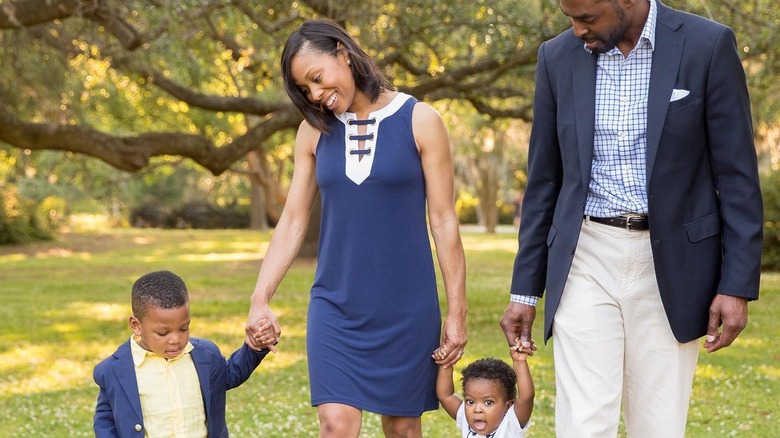
What's your specialty within OB-GYN?
I'm considered a generalist. That means I do both OB and GYN. I deliver babies. I also do hysterectomies [and] the annual pap smears in the office. I'm broad-based.
One of the things that you've been open about is your own struggles with fertility and pregnancy. Would you be able to talk about that a little bit, whatever you're comfortable sharing?
Yes. My husband and I got married right after he finished medical school, and we delayed childbearing for us to complete our residencies. Once we'd been married for about seven years, we started trying, but we never anticipated that it would take nearly four years to conceive or to have our first child. That process was a little shocking to me, and I had a unique perspective on what my patients were experiencing.
I became really sensitive to the issue, whereas before I was not. I became a fertility advocate, per se, for my patients, because I know the struggles. I know the shame that's often associated with fertility and how women often internalize and blame themselves. I had a couple of miscarriages along the way. [It] took about four years — one failed IUI — and eventually, we did conceive spontaneously. We have two boys now.
Thank you for sharing all of that with us — I'm so sorry for your losses. Can you share a little about what puts birthing parents at for miscarriages?
There are a couple of factors. The most common one we see in practice is age of the patient. As patients age, their egg quality can decline — not only does egg amount decline, but also the quality of those eggs can decline. That can certainly make it a little more difficult. Often it's more difficult to not only conceive, but to carry that pregnancy to term, if that egg quality is deemed poor.
Often, there are also other factors, including anatomical factors. If you have fibroids, which are super common ... Up to 50% of women have fibroids, even if they're undiagnosed. That can cause miscarriages. There can be clotting disorders within the blood, autoimmune disorders. There are lots of reasons that can cause patients to miscarry.
Taking care of your mental health after a miscarriage

Are there ways that miscarriages can be prevented?
That's a good question. There are lots of supplements that have been shown, in the medical literature, to improve the chances of carrying a pregnancy. But most miscarriages are genetic in nature, meaning that even if you're not over 35, which [is when] we consider you at higher risk for having a miscarriage ... Even if you're under that age, most miscarriages are genetic in nature, up to 85%.
When that happens, genetically, when the egg and sperm come together, those chromosomal divisions don't happen properly. Either too much chromosomal material or too little is placed in those cells. In that regard, you can't really prevent those. Even if you're a 20-year-old, you might have a miscarriage that is likely deemed genetic. In that regard, there's not a ton that you can do.
Some of the other causes of miscarriage, like metabolic disorders such as diabetes and other endocrine things, those miscarriages have a higher chance of being avoided if those baseline chronic conditions are under good control. If your hemoglobin A1C level is normal, then if you're diabetic, you have a better chance of not miscarrying.
How can prospective parents take care of their mental health after a miscarriage?
I'm a huge proponent of counseling, therapy, sessions with your pastor — basically, addressing some of the unspoken hurt and grief that's associated with a miscarriage. Although most miscarriages happen before 12 weeks, and it's super early in the game, most women — or most people in general — when they see that positive pregnancy test, they see a baby. They don't see a line. Now we have to jump through all these hoops and have our ultrasound and then have our genetic testing and then see if the baby progresses and grows. We expect a baby out of a positive pregnancy test.
You have to address the grief of losing someone you never met. A lot of people who have not encountered miscarriage have no idea what that means. Lots of family and friends might not know how to address a person who's grieving that loss and don't understand the gravity of it.
When can parents start trying again after a miscarriage?
This is one of my most favorite questions because it's an opportunity, when I'm in the exam room, to tell patients something that is optimistic and hopeful. Traditionally, the answer was three months. You allow your body to recover and recoup mentally, physically, emotionally. But now, once you've had one cycle after, or at least a cycle after having had a prior miscarriage, then you are safe to try again. There are all sorts of nuances and caveats that might play into that. But in general, if you've had an early first-trimester loss, then you can try again after having one menstrual cycle.
Increasing your chances of conceiving
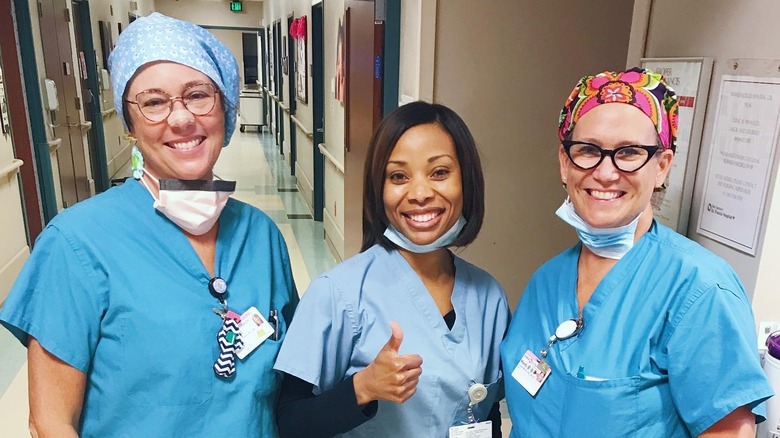
What are the things that people can do to improve their chances of conceiving — not necessarily just after a miscarriage, but in general as well?
Take care of yourself first. Intrinsically, the body knows what the body can handle. Oftentimes, we are not taking very good care of ourselves, and our bodies sense that, and our bodies are not likely to get pregnant at that state.
Again, I give my own example. I was trying to conceive — myself and my husband — for our first child. I realized that I was a chronic snooze-button hitter. I would hit the snooze button all the time because I was chronically sleep-deprived. I'd done an OB-GYN residency, and I developed this terrible habit of hitting the snooze button. I would wake up at the very last minute and I would run out of the house, blazing, leaving stuff all [in] disarray.
Anyways, I was actually seeking God and figuring out, "What's going on? Why am I not conceiving? Why has this not happened?" I had had all the fertility testing. Everything was proven to be normal. I had unexplained infertility, but it dawned on me that every day when I leave the house, my cortisol level shoots up because I leave in such a hurried fashion. I was thinking, why would my body want to bring pregnancy into this chaotic state? When your cortisol level goes up, that increases your sympathetic nervous system, and it's like fight or flight. There's no reason for me to get pregnant in this state.
So I changed some of my habits, and I became very intentional about my mornings and planning my day and getting up at a certain time. For me, that was the ticket. That's what my body needed to relax enough to be able to say, "This body can handle a pregnancy." That's my own personal thing, but there are all sorts of things that we can do to be healthier in terms of preparing for a baby.
Making sure that we have good control of our diet and being physically active, and that our mental health is taken care of and self-care ... [There are] so many things that we can do to take care of ourselves first. If you're on the plane, they say, "Take care of you first before helping your infant." The body definitely signifies that to us.
Boosting fertility

If you had to choose one piece of advice, what advice would you give parents who are having trouble conceiving?
Don't give up. Often, with many couples in general, that's the downfall. Many couples don't know this, but up to a year is normal. Up to a year of trying to conceive is normal. Folks sometimes come to my office; they've been trying for three months and they're devastated, wondering what's going on.
[It's] knowing that everyone has their own fertility journey and their pregnancy journey or their growing-their-family journey. It might not involve conceiving. But do not give up. I have so many patients who come to me, and they've been trying for several years, and they're despondent and don't even expect for it to happen. That self-fulfilling prophecy is often true. It doesn't happen.
I take a lot of time with my patients, helping them understand that you have to change your mindset first. Your mind has to change. You have to believe that this is going to happen. You have to take care of yourself physically, but also emotionally and spiritually. We have great success stories along the way.
That's amazing. When you're working with parents who are having trouble conceiving, what kinds of things can they be doing to boost their fertility, boost their chances?
There are lots of things, but in general, you want to know when you're most fertile. Lots of patients aren't even checking their ovulation, because everyone thinks that our smartphones are so smart that it knows exactly when we ovulate, and that's not true. There are so many apps out there, and not all of them are very accurate. Many times, patients are just missing their fertility window. I always recommend doing the ovulation predictor test to ensure you know exactly when your LH levels are rising so that you can be more intentional about getting pregnant.
I also recommend supplementation. Every woman should take a prenatal vitamin at some point in our life. Definitely, when you're trying to get pregnant, you want to make sure that you're getting adequate minerals and ensuring that you're getting the proper nutrition for preparing for a baby. Other supplementation exists that we could talk about, but [you] definitely [want] to make sure that you're supplementing based on what your age is, but also what your body's needs are. Vitamin D is often one that we recommend, [and] CoQ10.
Natalist does a great job of investigating supplements that can be actually helpful in conceiving, as opposed to just following the hype. All of our products are doctor recommended, and we've put a great deal of time and effort into researching and ensuring that we're only bringing the best products to the market.
Preparing for assisted reproductive procedures
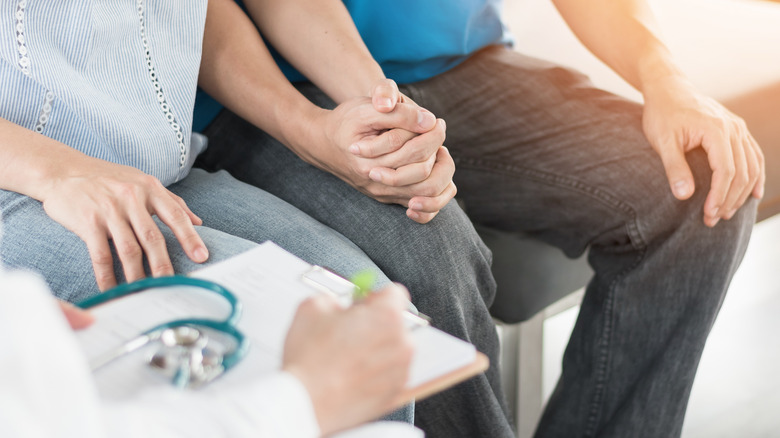
How can prospective parents start to prepare for assisted reproductive procedures, like IUI and IVF?
[One way is] finding a reproductive endocrinologist that you have good rapport with. I've never gone through IVF, but I did do IUI, and the rigors and the time-sensitive testing that is required can be a lot. Many patients, before that journey — they have no idea they'll be injecting themselves and no idea about these frequent ultrasounds and the costs involved and the emotional turmoil that's involved if it's unsuccessful.
If you have a good rapport with your reproductive endocrinologist, that's step number one. If you have a bad rapport and then you're having all these emotional issues, then it's going to be very difficult to, one, be successful, but two, want to do round three or round four or whatever's required. Find someone that you feel like you can trust and you have a good rapport with.
You touched on this already in that last answer, but what are the things that you think people absolutely need to know before they start IUI or IVF to make their journey a little bit easier?
Go into it knowing the statistics in terms of the success rate, but also go into it knowing, "What are all the options?" Some patients go into it and think, "I'm going to do this IUI. I might do it two or three times. I'm going to have a baby and all will go well." But they never considered, "What if my testing suggests that I need to go straight to IVF?" or "What if my testing suggests that I need to get a donor egg?"
Think about the entire, comprehensive experience, as opposed to, "Okay, I'm going to do this, and this is going to be the outcome." Being very flexible when preparing for assisted reproductive technology is huge, because you can't predict how many follicles you're going to make after that first gonadotropin injection. There's so many things that are unpredictable. If you're very rigid — and many of us Type-A folks have this issue — if you can't change, then you're going to have issues with assisted reproductive technologies. In general, you're going to have issues.
Taking care of yourself on your fertility journey
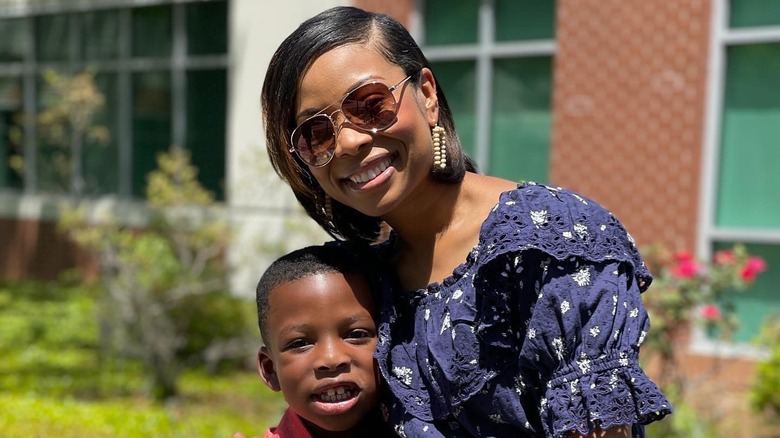
How can people take care of their mental health when they're dealing with infertility? It's different than dealing with miscarriage, but still a lot of grief.
[It's] being open about it and not internalizing what's happened, and also knowing that you're not alone. I spoke on this earlier, but infertility and miscarriages — they are two of the largest areas where women shut down and they have some sense of guilt, and they internalize what happens and they don't talk to others. I have so many patients that join miscarriage groups or infertility groups, and they deal with it much better because they're empowered. They understand; they're educated. They understand they're not alone, but they also learn from their counterparts who might be going through similar experiences.
I'm a huge advocate of not suppressing it. I learned this from my own experiences. I'm an OB-GYN; I had several miscarriages. Many times, my family didn't know. My office manager [and] my medical assistants didn't know until the last minute. Suppressing that often allows us not to deal with or process the emotions associated with it. That's going to reflect in other areas of our lives. Sometimes, that causes other issues down the road, and if we don't deal with grief, we know clearly that it's going to present somehow, even with physical manifestations later in life.
What advice do you have for prospective parents who are at the very beginning of their fertility journeys?
Enjoy the ride. Be encouraged and know that 85% to 90% of couples will be pregnant in that first year. But if you're not, [understand] that every woman, every man, every parent, couple — everyone — has their own, independent journey. Accepting that, owning that, and making the best of it is how you deal with any unexpected fertility issues that may arise.
